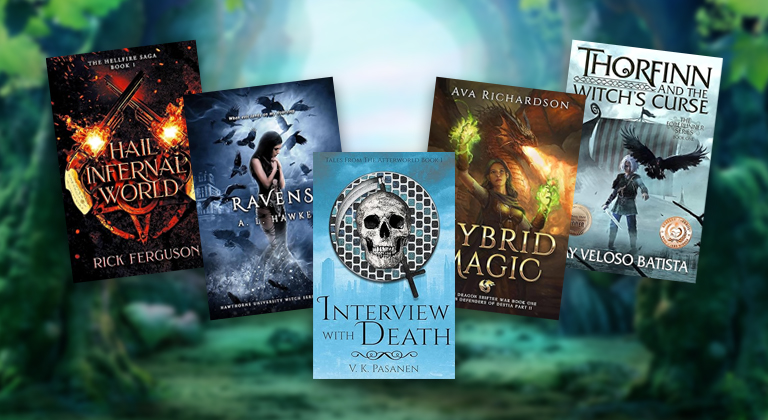What can Agatha Christie teach us about writing?
As he’s done in previous blogs, Ginger is breaking down the lessons we authors can take away from some of the greatest and most prolific writers in history. And there isn’t anyone more prolific or successful than Agatha Christie, having sold more copies of her books than any other modern author has ever done by a longshot. So what was the secret to her success, and how can you emulate it in your own way? Read on for Ginger’s breakdown to find out.
When it comes to best-selling authors of the modern age, there’s one clear winner: Agatha Christie. Over the course of her storied life, Christie wrote and published 85 books which have sold over 4 billion copies (and that’s not a typo – that’s billion spelt with a b.) She’s sold two billion more books than any author of the modern age – and they’re books that have spawned countless movie adaptations, TV series and miniseries, and essentially invented the modern ‘whodunnit’ formula.
But what is it about Agatha Christie’s writing that has made her such a stand-out success – the true reigning monarch of modern fiction. Here are 5 things any writer can learn from her incredibly successful catalog of best-sellers:
Start with the end in mind
Agatha Christie essentially invented the modern mystery novel. Pretty much every whodunnit that has been written in the last century owes its existence to what Christie shared with the world in books like Murder on the Orient Express and Death on the Nile. Undeniably, the appeal of these books is taking a journey alongside Christie’s famous fictional detectives (like Hercule Poirot or Miss Marple) and trying to figure out ‘whodunnit’ before she reveals truth in the final pages. Her books are incredibly compelling because of the deeply satisfying endings they uniformly deliver.
Christie mastered this by plotting out her stories back-to-front. She started with the ending and worked her way back from there. This way, each of Christie’s novels marched swiftly along to a predestined conclusion and nothing about their plots ever seems random, misplaced, or fizzles out before the end.
If you want to write addictive stories, coming up with the ending first is often a great piece of advice to follow. It helps shape your narrative and allows you to focus on the important plot threads as you build out your manuscript. It’s also a piece of advice many other authors swear by – with J.K. Rowling admitting that she wrote the final scene of the Harry Potter saga long before she completed the first book, and recent James Bond author Kim Sherwood confessing that she’d written the finale to her Double Oh Trilogy before the first installment had even been published.
“He laughs best who laughs at the end.”
The Big Four
Begin with a bang!
Sophie Hannah, the British author selected by the Christie family to write Poirot’s continuation novels in 2013, summarized one of the most compelling aspects of Agatha’s novels – the beginning.
“At the start of each novel, she shows us an apparently impossible situation and we go mad wondering ‘How can this be happening?’ Then, slowly, she reveals how the impossible is not only possible but the only thing that could have happened.”
The openings of Christie’s novels are one of the reasons they were instantly embraced by the reading public. She always begins her novels with something incredibly compelling – usually a murder – and by the time we’ve read about it, we’re practically unable to put the book down until we can figure out what happened.
Writers can most definitely benefit from following this advice. Of course, your opening sentence should always be a hook – but to really cling to new readers, you need the entire first chapter to grab them by the throat and refuse to let go. Creating a truly compelling, mysterious situation to unravel ensures the pages keep turning right up until the final one.
“The impossible could not have happened, therefore the impossible must be possible in spite of appearances.”
Murder on the Orient Express
Keep your story moving swiftly…
One of the other reasons Agatha Christie’s novels have remained so popular is that they’re fast-paced. The action happens very quickly, and each chapter builds on the tension to keep the reader flipping through the pages. It’s a technique that many modern writers use highly effectively (like Lee Child, for example) but its roots undeniably belong to Agatha Christie. She literally defined the pacing of modern mystery novels.
As a writer, you should consider this with everything you write. Certainly, there’s plenty of room for long form fiction – but to really grab a reader by the throat and force them to keep reading, it helps to make each chapter feel like a potato chip – delicious, but you can’t stop until you have just one more…
Christie herself said this about the pacing of her novels:
Economy of wording, I think, is particularly necessary in detective stories. You don’t want to hear the same thing rehashed three or four times over.
An Autobiography
Everything should matter.
One of the other writing techniques that Lee Child adopted from Agatha Christie is the deliberate and painstaking placement of red herrings and clues throughout each story. He once said:
“If the book doesn’t work, it’s the author’s fault. I’m very, very conscious that nothing in any of my books is a random surprise or isn’t extensively foreshadowed. You’ve gotta play fair.”
Agatha Christie was a master of misdirection in this way. It goes back to the first tip in this list – to start with the end in mind – and it’s fantastic writing advice. If you know the ending of your book already, it allows you to trip readers up with cleverly constructed ‘red herrings’ (a clue that is deliberately meant to be misleading) or layer in real clues that readers might not pick up on until the conclusion of the book – but seem so satisfying in retrospect.
“Everything must be taken into account. If the fact will not fit the theory—let the theory go.”
The Mysterious Affair at Styles
Write like you’re a professional.
Perhaps the most important piece of advice you can get from the legacy of Agatha Christie is a sense of commitment and professionalism to your writing. She’s one of the most prolific authors of all time, with 85 published works to her name, plus having written the longest-running stage play of all time (The Mousetrap.) She was a machine when it came to writing and publishing books, and that was a very deliberate choice on her part.
Christie’s decision to be a ‘real’ writer came about when she was nearly forced to sell the house she was born and brought up in, Ashfield. Located in Torquay, Devonshire, it was a home she felt a deep connection to and when she was first faced with having to sell the property, asked desperately for advice on how she might be able to keep it.
The answer? Writing.
Christie complained: “I couldn’t bear to sell Ashfield, I love it. It means everything.” At that, Agatha’s first husband, Archibald Christie, told her: “Why don’t you try to do something about it? Write another book. It might make a lot of money.”
And write another book she did – and many more after that. In fact, part of Agatha Christie’s domination of fiction stems from how prolific an author she was. Christie wrote diligently from that point forward and the amount of high quality writing she produced is why she remains unassailable in the sheer scale of her legacy.
If you want to be successful, the best advice Agatha Christie can give you is just to write! Write like a professional – like it’s your job! If you do so for long enough, that’s what it will inevitably become.
“There was a moment when I changed from an amateur to a professional. I assumed the burden of a profession, which is to write even when you don’t want to, don’t much like what you’re writing, and aren’t writing particularly well.”
An Autobiography












Excellant summation !
Great article.